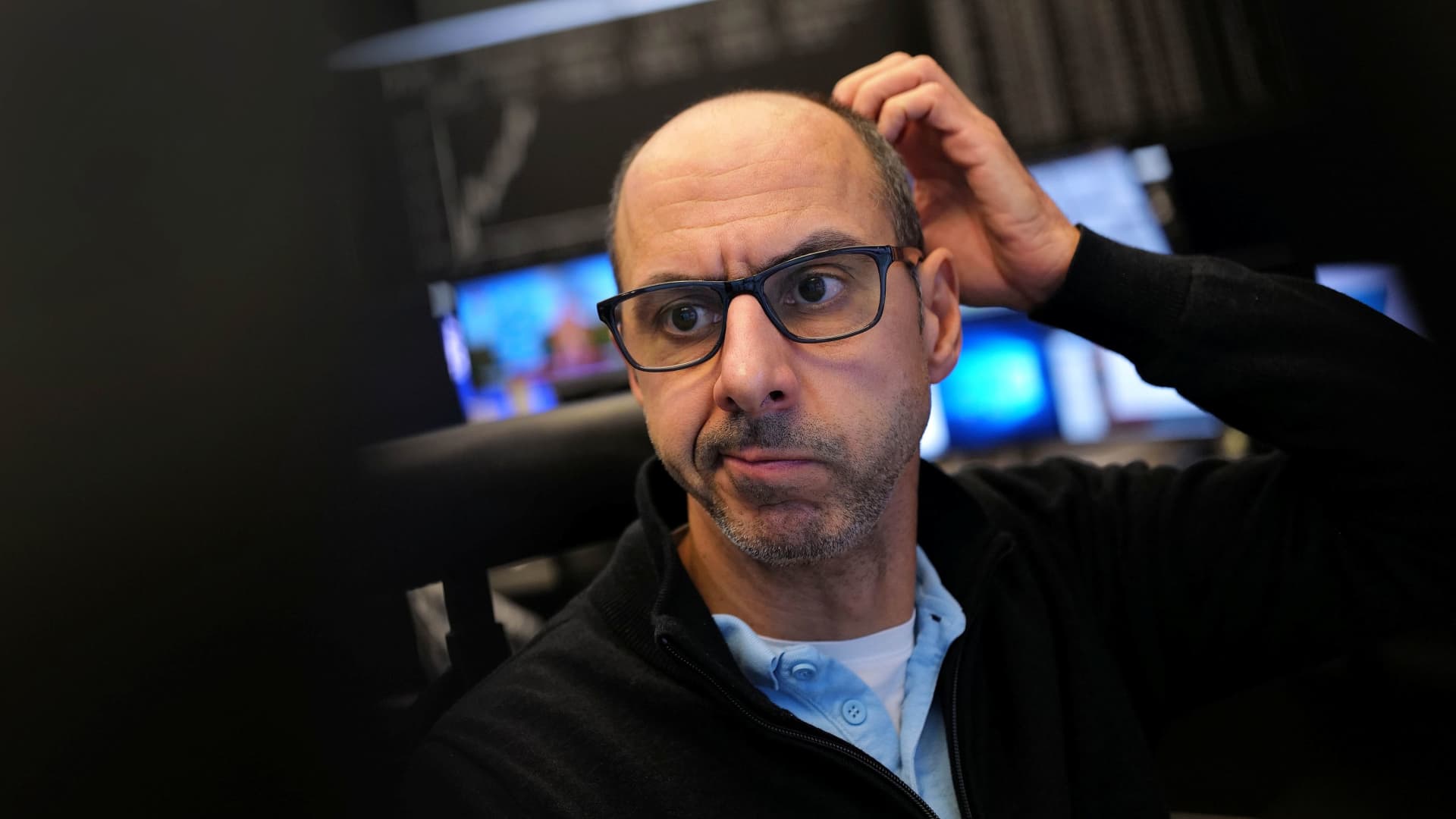
Tetra Images – Erik Isakson | Brand X Pictures | Getty Images
Investment funds that promote values like the environment and social good have become more popular.
But trying to pick a so-called ESG fund — especially one that aligns well with your interests — may seem about as easy as drying a towel in a rainstorm.
“I think it can be really hard to know where to start,” said Fabian Willskytt, associate director of public markets at Align Impact, a financial advice firm that specializes in values-based investing.
Luckily, there are some simple steps investors can take to get started and invest with confidence.
ESG funds
Steve Cicero | Photographer’s Choice | Getty Images
Funds that allocate investor money according to environmental, social and governance issues held $357 billion at the end of 2021 — more than four times the total three years earlier, according to Morningstar, which tracks data on mutual and exchange-traded funds.
Investors poured $69.2 billion into ESG funds (also known as sustainable or impact funds) last year, an annual record, according to Morningstar.
These funds come in a variety of flavors. Some may seek to promote gender or racial equality, invest in green-energy technology or avoid fossil-fuel, tobacco or gun companies, for example.
Women and younger investors (under 40 years old) are most likely to be interested in ESG investments, according to Cerulli Associates survey data. About 34% of financial advisors used ESG funds with clients in 2021, up from 32% in 2020, according to the Financial Planning Association.
There are now more than 550 ESG mutual and exchange-traded funds available to U.S. investors — more than double the universe five years ago, according to Morningstar.
“An individual investor has a lot more [ESG options] and can build a portfolio in ways they couldn’t 10 years ago,” said Michael Young, manager of education programs at the Forum for Sustainable and Responsible Investment. “Almost every [asset] category I can think of has a fund option, so we’ve come a long way.”
But fund managers may use varying degrees of rigor when investing your money — meaning that environment-focused fund you bought isn’t necessarily as “green” as you think.
Here’s an example: Some fund managers may “integrate” ESG values when picking where to invest money, but it may only play a supporting (and not a central) role. Conversely, other managers have an explicit ESG mandate that acts as the linchpin of their investment decisions.
But investors may not know the difference.
The Securities and Exchange Commission proposed rules last week that would increase transparency for investors and help make it easier to select an ESG fund. The rules would also crack down on “greenwashing,” whereby money managers mislead investors over ESG fund holdings.
ESG tips for investors
All this might leave you thinking: How can I get started? And how can I be confident my investments truly align with my values?
There are some simple steps investors can take, according to ESG experts.
One way to start is by examining the asset manager, which serves as a good “shorthand” for investors, according to Willskytt at Align Impact.
Some firms are focused on ESG and have a long history of investing this way — both of which are encouraging signs for people serious about values-based investing, he said.
If you have confidence in the manager, the funds will be more or less strong from an ESG perspective.
Fabian Willskytt
associate director of public markets at Align Impact
Investors can get a sense of a firm’s commitment by looking at its website and whether it displays ESG as a major focus, he added. From there, investors can pick from that firm’s available funds.
“It’s a definitely a red flag if you can only find the barest of [website] information,” said Jon Hale, director of sustainability research for the Americas at Sustainalytics, which is owned by Morningstar. “It suggests the commitment maybe isn’t as high as with other funds.”
Examples of ESG-focused firms include Calvert Research and Management and Impax Asset Management, Willskytt said. Nuveen, which is owned by TIAA, also has a relatively long track record of ESG investing, he added.
Morningstar rated Calvert and Pax, along with four others (Australian Ethical, Parnassus Investments, Robeco and Stewart Investors) as the ESG asset-management leaders, according to an ESG Commitment Level assessment issued in 2020. (However, not all cater to U.S. individual investors.) An additional six, including Nuveen/TIAA, ranked a tier below in the “advanced” ESG category.
More from Personal Finance:
How to pay for college after a financial setback
How to choose between a pre-tax and Roth 401(k)
Consumers spend an average $133 more a month on subscriptions than they realize
“If you have confidence in the manager, the funds will be more or less strong from an ESG perspective,” Willskytt said. “Then it’s about finding the flavors that work for you.”
There is a drawback, however. Despite ESG fund growth, investors may not yet be able to easily find a fund that corresponds with a specific issue, depending on the niche. There are plenty of climate-focused funds and broad ESG funds that account for many different value-based filters, for example, but something like a gun-free fund is harder to find, experts said.
Most (70%) of sustainable funds are actively managed, according to Morningstar. They may carry a bigger annual fee than current funds in your portfolio (depending on your current holdings).
Investors who want to learn a bit more about ESG before taking the plunge can review a free course on the basics from the Forum for Sustainable and Responsible Investment.
Another approach
Thomas Barwick | DigitalVision | Getty Images
Investors can also start by sifting through a few free databases of mutual funds and ETFs.
The Forum for Sustainable and Responsible Investment has one that lets investors sort ESG funds according to categories like asset class (stock, bond, and balanced funds, for example), issue type and investment minimum.
This list isn’t exhaustive, though — it includes funds from Forum member firms. (However, the fact that the firm is a member may be a reliable screen for the asset manager’s ESG rigor, Young said.)
As You Sow is another organization that can help investors find funds that are fossil-fuel-free, gender-equal, gun-free, prison-free, weapons-free and tobacco-free, for example. It maintains rankings of the top funds by category.
An individual investor has a lot more [ESG options] and can build a portfolio in ways they couldn’t 10 years ago.
Michael Young
manager of education programs at the Forum for Sustainable and Responsible Investment
Alternatively, investors can also use As You Sow’s website to gauge how well their current investments align with their values. They can type in a fund’s ticker symbol, which generates a fund score according to different value categories.
Other firms also assign ESG ratings to specific funds. Morningstar, for example, assigns a certain number of “globes” (5 being the best score) so investors can assess the fund’s ESG scope. Morningstar has an ESG Screener that also lets investors filter for funds according to certain ESG parameters.
One caveat: The globe system and other third-party ratings don’t necessarily signal an asset manager’s ESG intent. In theory, a fund could have stellar ESG ratings by accident, not due to a manager’s focus.
Investors can use fund databases to identify ESG investments they might like, then research the asset-management firm to see how committed the firm is to ESG overall.
For investors who aren’t as do-it-yourself oriented, working with a financial advisor well-versed in ESG may be the most surefire way to know your investments most align with your values and mesh with your overall portfolio and investment goals. Advisors may have more advanced screening tools at their disposal relative to a retail investor, for example.







